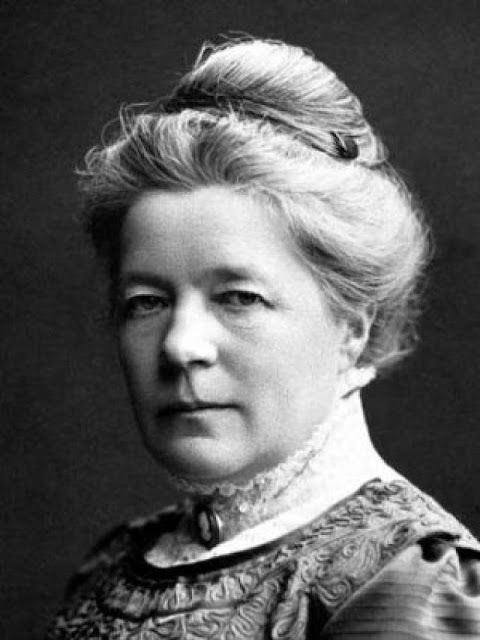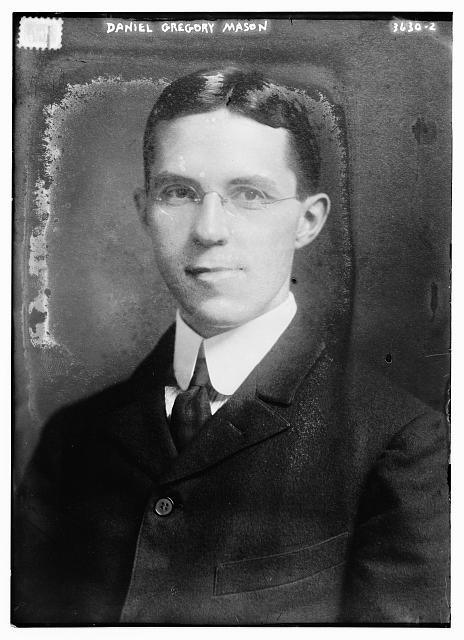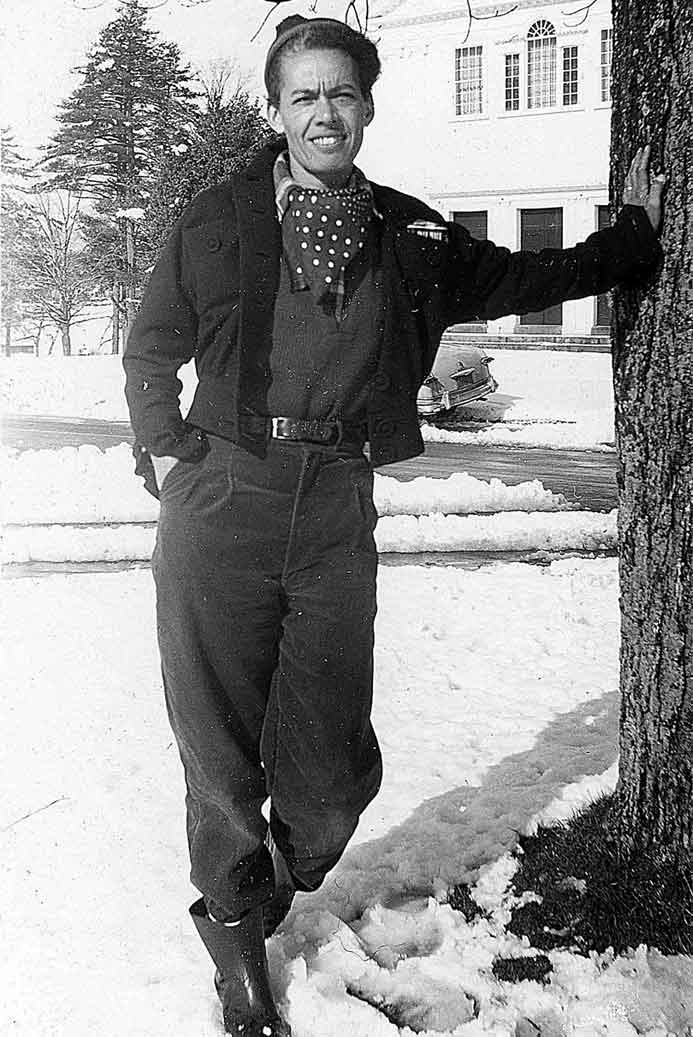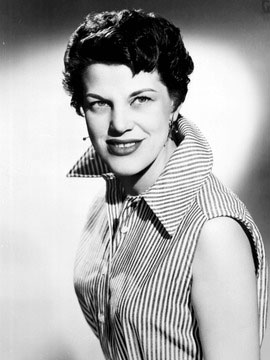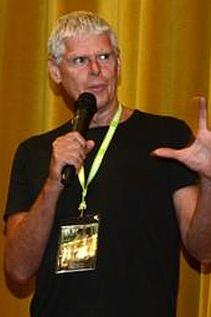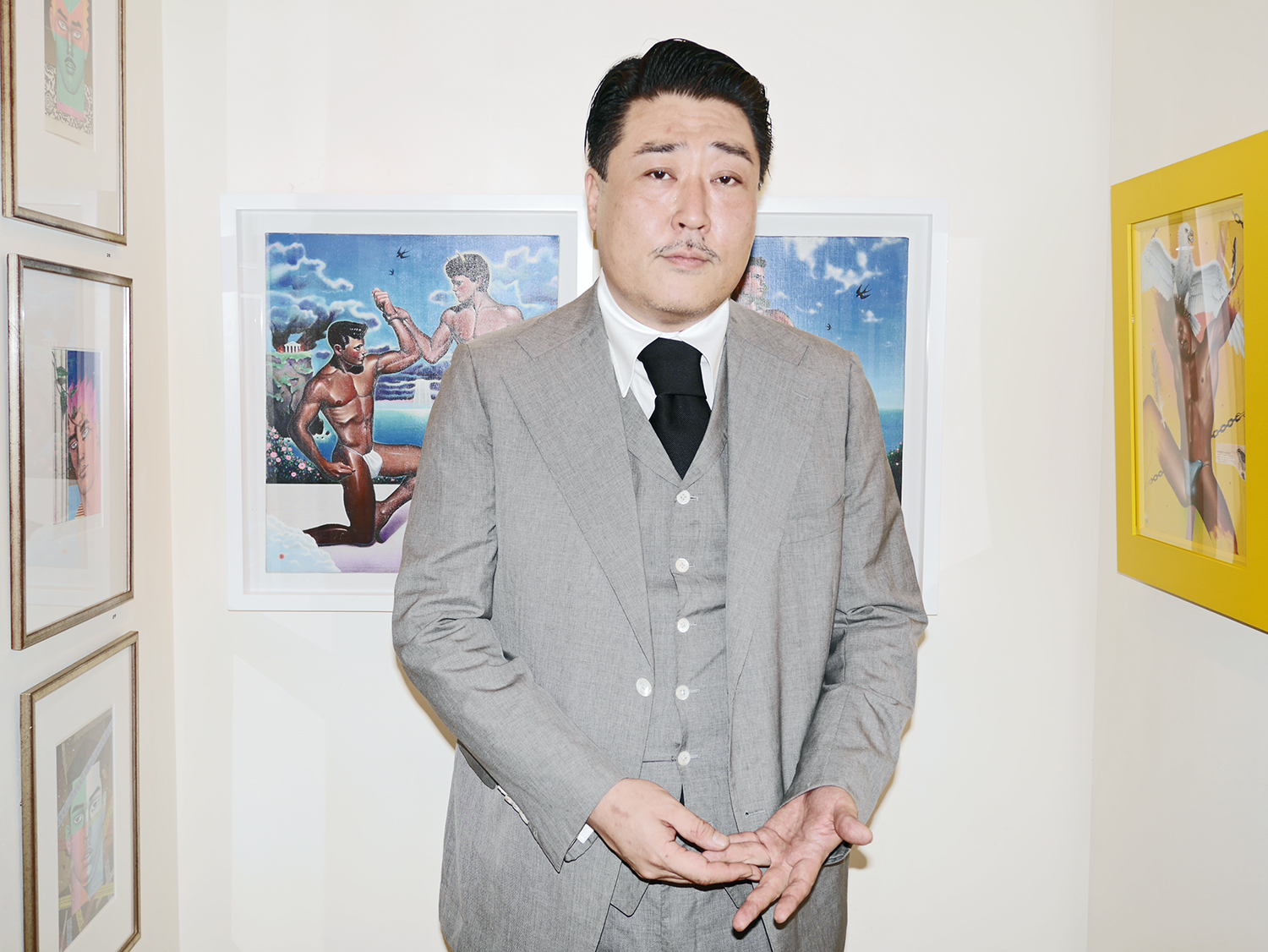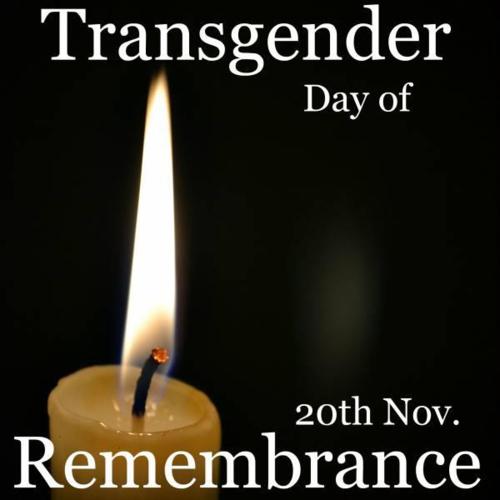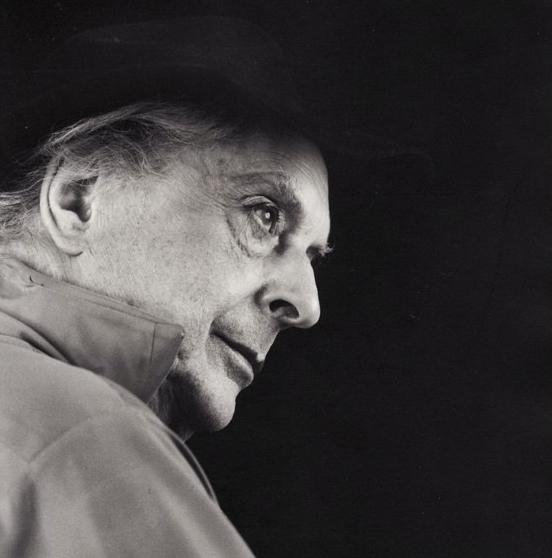November 20
SELMA LAGERLÖF, Swedish author, Nobel Laureate (d. 1940); Swedish author and the first woman writer to win the Nobel Prize in Literature. Known internationally for a story for children, The Wonderful Adventures of Nils, in 1909 Selma Lagerlöf won the Nobel Prize in Literature "in appreciation of the lofty idealism, vivid imagination and spiritual perception that characterize her writings." In 1914 she also became a member of the Swedish Academy, the body that awards the Nobel Prize in literature. At the start of WWII, she sent her Nobel Prize medal and her gold medal from the Swedish academy to the government of Finland to help them raise money to fight the Soviet Union. The Finnish government was so touched that it raised the necessary money by other means and returned her medal to her.
Her first novel, The Story of Gösta Berling, was adapted into an internationally acclaimed motion picture starring Greta Garbo. She lived in Sunne, where two hotels are named after her. Her home, Mårbacka, is now preserved as a museum. She wrote a copious amount of letters to her two partners, Sophie Elkan and Valborg Olander.
American composer DANIEL GREGORY MASON, was born on this date (d: 1953); Mason came from a long line of notable American musicians, including his father Henry Mason. He studied under John Knowles Paine at Harvard University from 1891 to 1895, continuing his studies with George Chadwick and Goetschius. In 1894 he published his Opus 1, a set of keyboard waltzes, but soon after began writing on music for his primary career. He became a lecturer at Columbia University in 1905, where he would remain until his retirement in 1942, successively being awarded the positions of assistant professor (1910), MacDowell professor (1929) and head of the music department (1929-1940). He was the lover of composer-pianist John Powell.
Anna Pauline "PAULI" MURRAY was an American civil rights activist born on this date, who became a lawyer, a women's rights activist, Episcopal priest, and author. Drawn to the ministry, in 1977 Murray was the first African-American woman to be ordained as an Episcopal priest, in the first year that any women were ordained by that church.
Born in Baltimore, Maryland, Murray was virtually orphaned when young, and she was raised mostly by her maternal grandparents in Durham, North Carolina. At the age of 16, she moved to New York City to attend Hunter College, and graduated with a Bachelor of Arts degree in English in 1933. In 1940, Murray sat in the whites-only section of a Virginia bus with a friend, and they were arrested for violating state segregation laws. This incident, and her subsequent involvement with the socialist Workers' Defense League, led her to pursue her career goal of working as a civil rights lawyer. She enrolled in the law school at Howard University, where she also became aware of sexism. She called it "Jane Crow", alluding to the Jim Crow laws that enforced racial segregation in the Southern United States. Murray graduated first in her class, but she was denied the chance to do post-graduate work at Harvard University because of her gender. She earned a master's degree in law at University of California, Berkeley, and in 1965 she became the first African American to receive a Doctor of Juridical Science degree from Yale Law School.
As a lawyer, Murray argued for civil rights and women's rights. National Association for the Advancement of Colored People (NAACP) Chief Counsel Thurgood Marshall called Murray's 1950 book, States' Laws on Race and Color, the "bible" of the civil rights movement. Murray served on the 1961–1963 Presidential Commission on the Status of Women, being appointed by John F. Kennedy. In 1966 she was a co-founder of the National Organization for Women. Ruth Bader Ginsburg named Murray as a coauthor of a brief on the 1971 case Reed v. Reed, in recognition of her pioneering work on gender discrimination. This case articulated the "failure of the courts to recognize sex discrimination for what it is and its common features with other types of arbitrary discrimination." Murray held faculty or administrative positions at the Ghana School of Law, Benedict College, and Brandeis University.
In 1973, Murray left academia for activities associated with the Episcopal Church. She became an ordained priest in 1977, among the first generation of women priests. Murray struggled in her adult life with issues related to her sexual and gender identity, describing herself as having an "inverted sex instinct". She had a brief, annulled marriage to a man and several deep relationships with women. In her younger years, she occasionally had passed as a teenage boy. A number of scholars, including a 2017 biographer, have retroactively classified her as transgender. In addition to her legal and advocacy work, Murray published two well-reviewed autobiographies and a volume of poetry. Her volume of poetry, Dark Testament, was republished in 2018.
Murray struggled with her sexual and gender identity through much of her life. Her marriage as a teenager ended almost immediately with the realization that "when men try to make love to me, something in me fights". Although acknowledging the term "homosexual" in describing others, Murray preferred to describe herself as having an "inverted sex instinct" that caused her to behave as a man attracted to women would. She wanted a "monogamous married life", but one in which she was the man. The majority of her relationships were with women whom she described as "extremely feminine and heterosexual". In her younger years, Murray often was devastated by the end of these relationships, to the extent that she was hospitalized for psychiatric treatment twice, in 1937 and in 1940.
Murray wore her hair short and preferred pants to skirts; due to her slight build, there was a time in her life when she was often able to pass as a teenage boy. In her twenties, she shortened her name from Pauline to the more androgynous Pauli. At the time of her arrest for the bus segregation protest in 1940, she gave her name as "Oliver" to the arresting officers. Murray pursued hormone treatments in the 1940s to correct what she saw as a personal imbalance and even requested abdominal surgery to test if she had "submerged" male sex organs. Writing about Murray's understanding of their gender, Rosalind Rosenberg, author of Jane Crow: The Life of Pauli Murray, categorized Murray as a transgender man. When asked about her understanding of Murray's gender in a 2017 interview with the African American Intellectual History Society, Rosenberg states, "(During Pauli's early life) These were years when the term transgender did not exist and there was no social movement to support or help make sense of the trans experience. Murray’s papers helped me to understand how her struggle with gender identity shaped her life as a civil rights pioneer, legal scholar, and feminist." In an interview with HuffPost Queer Voices, Dr. Britnney Cooper agreed on the matter "Murray prefered androgynous dress, had a short hairstyle and may have identified as a transgender male today ... but lacked the language to do so at the time.
In July 1985, Pauli Murray died of pancreatic cancer in the house she owned with lifelong friend, Maida Springer Kemp, in Pittsburgh, Pennsylvania.
In 2012 the General Convention of the Episcopal Church voted to honor Murray as one of its Holy Women, Holy Men, to be commemorated on July 1, the anniversary of her death, along with fellow writer Harriet Beecher Stowe. Bishop Michael Curry of the Diocese of North Carolina said this recognition honors "people whose lives have exemplified what it means to follow in the footsteps of Jesus and make a difference in the world."
In 2015 the National Trust for Historic Preservation designated the childhood home of Murray (on Carroll Street in Durham, North Carolina's West End neighborhood) as a National Treasure.
In April 2016, Yale University announced that it had selected Murray as the namesake of one of two new residential colleges (Pauli Murray College) to be completed in 2017; the other was to be named after Benjamin Franklin.
In December 2016 the Pauli Murray Family Home was designated as a National Historic Landmark by the US Department of Interior.
KAYE BALLARD, American comic actress, born (d: 2019); an actress who appeared on Broadway and on television. From 1967 to 1969, she co-starred in the NBC sitcom, The Mothers-In-Law, with Eve Arden. In 2005, she appeared in a road company production of Nunsense, which was written by Dan Goggin. She , as they say, never married.
WILLIAM BRANDEN BLINN, born on this date, is a content creator who has written, directed and produced over 30 short LGBTQI+-centered film and episodic web form content, most of it for YouTube. Created by Branden, our YouTube Channel has achieved over 100,000 subscribers and and over 40,000,000 worldwide views - mostly by word of mouth and with zero advertising. When asked by HERE media what the secret to his success was he replied, "It's simple we produce honest, compelling, high quality content geared toward a market few creative communities cater to but we care deeply about.
Among the films he has written and/or produced include Swell, Derek and Cameron, Truth or Dare, Without a Mom, Triple Standard, He She We and Toeing the Line.
SADAO HASEGAWA, was a Japanese graphic artistborn on this date (b: 1945) known for creating homoerotic fetish art. His works are noted for their extensive detail, elaborate fantasy settings, and for their juxtaposition of elements from from Japanese, Balinese, Thai, Tibetan Buddhist, African, and Indian art. While Hasegawa focused primarily on depictions of muscular male physique, he often incorporated extreme sexual themes in his works, including bondage and sadomasochism. His art is noted for strong mystical and spiritual overtones.
Hasegawa was born in the Tōkai region of Japan. In his twenties, he traveled to India and began to take up drawing. His first solo exhibition, "Sadao Hasegawa's Alchemism: Meditation for 1973" was held in 1973 in Tokyo, Japan, and featured oil paintings, collages, and sculptures. In 1978, Hasegawa's art was published for the first time in Barazoku, a monthly magazine for gay men; he would later go on to be published in Sabu, Samson, and Adon.
Hasegawa cited Go Mishima and Tom of Finland among his influences, calling the former "a master illustrator of the male physique" in an obituary written in 1989 for Barazoku. His early works, directly inspired by Tom of Finland, reflected European art styles. Beginning in the late 1980s, Hasegawa began making regular trips to Bali and Thailand, resulting in a greater focus on Asian iconography and mythology in his art.
On November 20, 1999, Hasegawa committed suicide by hanging at a hotel room in Bangkok, Thailand. His artwork was initially disposed of by his family, though it was recovered upon their discovery of a note – alongside a portrait of Yukio Mishima painted on a stone – granting ownership of his works to Gallery Naruyama in Tokyo. Six unseen paintings were discovered among Hasegawa's estate, which were shown in "Linga", a posthumous exhibition at Gallery Naruyama in 2000. Today, Gallery Naruyama holds the majority of Hasegawa's collected works.
Hasegawa is regarded as one of the most influential creators of homoerotic art in Japan. Bungaku Itō, the founding editor of Barazoku, described Hasegawa's art as "transcend[ing] the level of pornography, emulating likenesses found in Buddhist art." Despite this, Hasegawa's artwork has received limited exposure in Japan, with only a single monograph – Paradise Visions, published in 1996 by Kochi Studio – having been published domestically.
Hasegawa refused numerous requests to exhibit and distribute his work internationally, though Sadao Hasegawa: Paintings and Drawings, a collection the artist's magazine work, was published by the British publishing house Gay Men's Press in 1990. In 2022 UK publisher Baron Books released a first posthomous monograph of Hasegawa's rarely-published archive.
TRANSGENDER DAY OF REMEMBRANCE -- Since 1999 today was set aside to memorialize those who were killed due to anti-transgender hatred or prejudice (transphobia). The event is held on November 20th, founded by Gwendolyn Ann Smith, to honor Rita Hester, whose murder in 1998 kicked off the "Remembering Our Dead" web project and a San Francisco candlelight vigil in 1999. Since then, the event has grown to encompass memorials in hundreds of cities around the world.
Do You Believe In God?
By Quentin Crisp
Well, now, the last time You-Know-Who was mentioned, I began by saying I wouldn't like to say anything that gave offense. And someone in the audience said, "Why stop now?" But this is still something that worries me, so if at any moment anyone finds anything I say offensive, they have only to jump up and down, make a scene, and we will stop.
I believe, like most people, not that of which logic can convince me but what my nature inclines me to believe. This is so of nearly everybody. I am unable to believe in a God susceptible to prayer as petition. It does not seem to me to be sufficiently humble to imagine that whatever force keeps the planets turning in the heavens is going to stop what it's doing to give me a bicycle with three speeds.
But if God is the universe that encloses the universe, or if God is the cell within the cell, or if God is the cause behind the cause, then this I accept absolutely. And if prayer is a way of aligning your body with the forces that flow through the universe, then prayer I accept. But there is a worrying aspect about the idea of God. Like witchcraft or the science of the zodiac or any of these other things, the burden is placed elsewhere. This is what I don't like.
You see, to me, you are the heroes of this hour. I do not think the earth was ever meant to be your home. I do not see the sky as a canopy held over your head by cherubs or see the earth as a carpet laid at your feet. You used to live an easy lying-down life in the sea. But your curiosity and your courage prompted you to lift your head out of the sea and gasp this fierce element in which we live. They are seated on Mars, with their little green arms folded, saying, "We can be reasonably certain there is no life on Earth because there the atmosphere is oxygen, which is so harsh that it corrupts metal." But you learned to breathe it. Furthermore, you crawled out of the sea, and you walked up and down the beach for centuries until your thighbones were thick enough to walk on land. It was a mistake, but you did it.
Once you have this view of your past — not that it was handed to you but that you did it — then your view of the future will change. This terror you have of the atom bomb will pass. Something will arise which will breathe radiation if you learned to breathe oxygen.
So you don't have to worry. Don't keep looking into the sky to see what is happening. Embrace the future. All you have to do about the future is what you did about the past. Rely on your curiosity and your courage and ride through the night.
"Do You Believe in God" is from The Wit and Wisdom of Quentin Crisp (1984), edited by Guy Kettelhack.
Subscribe to Gay Wisdom
Would you like to have Today in Gay History (aka Gay Wisdom) sent to you daily?

